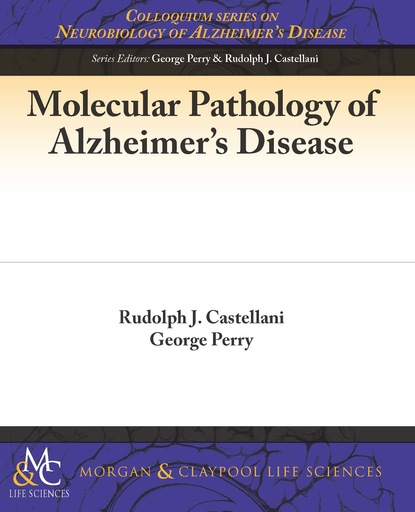
Molecular Pathology of Alzheimer's Disease скачать fb2
Rudy Castellani - Molecular Pathology of Alzheimer's Disease краткое содержание
Alzheimer’s Disease is characterized pathologically by two principal hallmark lesions: the senile plaque and the neurofibrillary tangle. Since the identification of each over 100 years ago, the major protein components have been elucidated. This has led in turn to the elaboration of metabolic cascades involving amyloid-β production in the case of the senile plaque, and phosphorylated-tau protein in the case of the neurofibrillary tangle. The pathogenesis and histogenesis of each have been the source of extensive investigation and some controversy in recent years, as both cascades have been implicated in the pathogenesis of Alzheimer’s Disease, relied upon in the diagnostic criteria for Alzheimer’s Disease at autopsy, and targeted for therapeutic intervention. With the accumulation of data and expansion of knowledge of the molecular biology of Alzheimer’s Disease, it appears that the enthusiasm for successful intervention has been premature. In this book, we detail the discovery and characterization of the major pathological lesions, their associated molecular biology, their relationship to clinical disease, and potential fundamental errors in understanding that may be leading scientific investigators in unintended directions.
Скачать книгу «Molecular Pathology of Alzheimer's Disease» Rudy Castellani
Чтобы оставить свою оценку и/или комментарий, Вам нужно войти под своей учетной записью или зарегистрироваться



